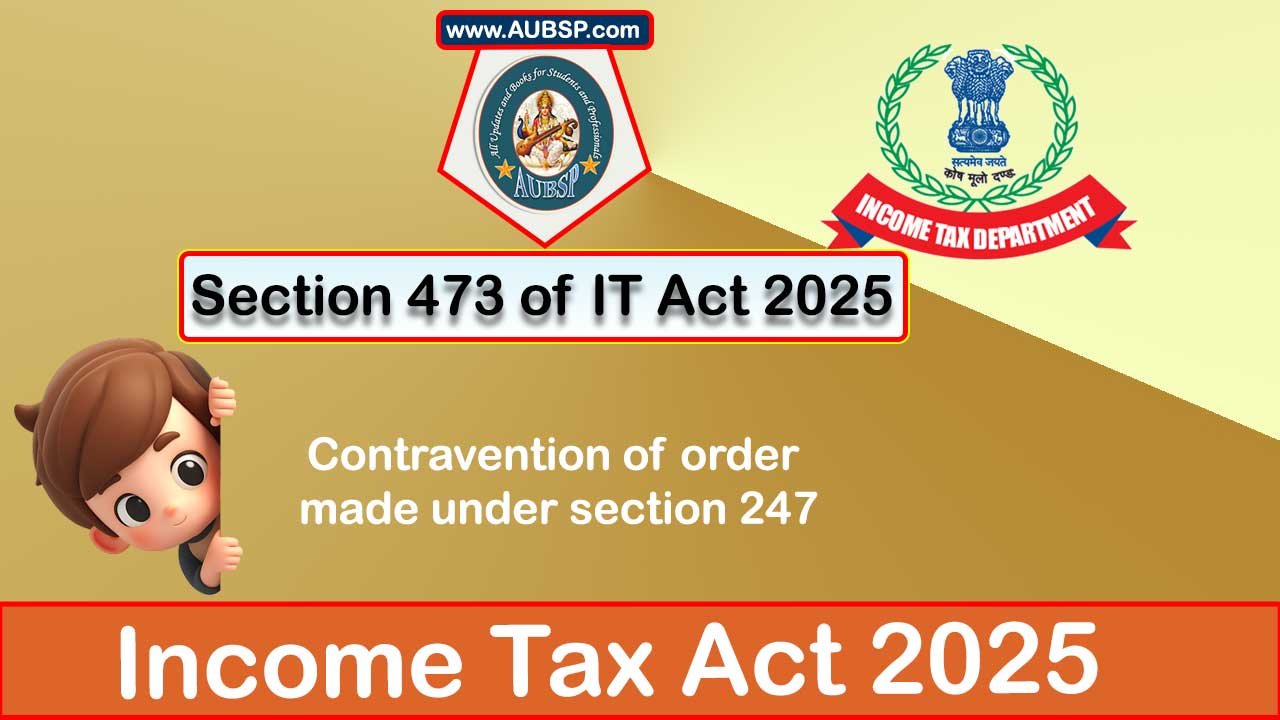Contravention of order made under section 247
[Section-473 as per the Income Tax Act, 2025 (this Act) w.e.f. 1st April, 2026.]
Whoever contravenes any order referred to in section 247(1)(viii) or (4) shall be punishable with rigorous imprisonment which may extend to two years and shall also be liable to fine.
FAQs on section 247 of Income Tax Act 2025
What is the punishment for contravening an order under section 247(1)(viii) or section 247(4)?
The punishment is rigorous imprisonment which may extend to two years and also a fine.
What type of imprisonment is prescribed for violation under section 473?
The imprisonment is rigorous in nature.
Can a person be fined in addition to imprisonment under section 473?
Yes, the person shall also be liable to a fine in addition to rigorous imprisonment.
Does section 473 apply to all types of orders under section 247?
No, it specifically applies to orders under section 247(1)(viii) and section 247(4).
Is there a minimum term of imprisonment specified in section 473?
No, the section only specifies the maximum term of imprisonment which may extend to two years.
Who is liable under section 473?
Any person who contravenes an order made under section 247(1)(viii) or 247(4) is liable under this section.
Is the offence under section 473 compoundable?
The section itself does not specify whether the offence is compoundable. This would depend on general provisions related to compounding under this Act.
What is the effective date of enforcement for section 473?
Section 473 is effective from 1st April, 2026.
Is the offence under section 473 bailable or non-bailable?
Section 473 does not specify this. The classification would depend on procedural laws applicable alongside the Income Tax Act, 2025.
Can a company be held liable under section 473?
The section refers to “whoever” which can include individuals or entities depending on the context, but the enforcement and prosecution will follow as per procedural rules.


